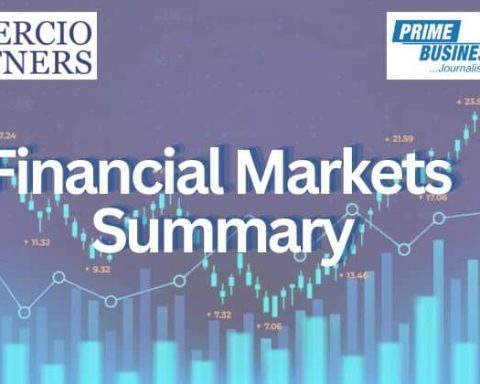With the excruciating economic challenges in Nigeria, gaining financial stability continues to elude many citizens, especially salary earners whose incomes remain stable as the cost of living continues to soar.
To brace the odds, making investments for future savings has been identified as one of the strategies for gaining financial stability.
Join our WhatsApp ChannelFinancial experts have averred that keeping money in traditional Nigerian banks savings accounts gives no significant benefit as they offer zero interest rates. With the service charges and other deductions, coupled with the soaring inflation, funds sitting idle in regular savings accounts continue to lose value over time.
For those, who are new to investing in Nigeria, and may be unsure about where to invest their money in order to make long-term profits, bonds, which are financial instruments issued by the government or business entities to raise money from investors, is one alternative to consider.
Investing in bonds have been identified as a smart way to grow one’s savings without taking on too much risk.
Here are reasons investing in bonds is a smart financial management strategy
Steady and Predictable Income
Bonds pay fixed interest (coupon payments) at regular intervals, providing a reliable income stream.
Unlike stock, returns are more predictable, making them ideal for conservative savers.
Lower Risk Than Stocks
Bonds are said to be generally less volatile than stocks, thereby protecting one’s savings from market swings.
High-quality bonds (like government or investment-grade corporate bonds) have lower default risk.
Capital Preservation
If held to maturity, the bond issuer repays the full principal, making it safer than riskier assets.
Bonds are also ideal for short to medium-term savings goals (e.g., saving to buy a house, education, emergency fund).
Diversification for Stability
Expert believe that adding bonds to a portfolio reduces overall risk because they often perform differently than stocks.
It helps in balancing losses during stock market downturns.
Tax Advantages (Some Bonds)
Some types of bonds have tax advantages. Municipal bonds (munis) offer tax-free interest income (federal and sometimes state/local).
Treasury bonds are exempt from state and local taxes.
Inflation Protection (With Certain Bonds)
TIPS (Treasury Inflation-Protected Securities) adjust with inflation, safeguarding purchasing power.
Flexible Investment Horizon
Bonds come in various maturities like short-term, medium-term, and long-term, allowing investors to choose the ones that match their savings timeline.
When Are Bonds Best for Savings?
Emergency funds (short-term, high-quality bonds);
Retirement savings (mixed with stocks for balance);
Saving for a near-term goal (e.g., down payment in 3-5 years)
Here’s a step-by-step guide on how Nigerians can invest in bonds for savings:
Types of Bonds Available in Nigeria
Before investing, know the different types of bonds:
Federal Government Bonds (e.g., FGN Savings Bonds, Treasury Bills), issued by the Debt Management Office (DMO).
According to the DMO, the FGN Bonds are considered as the safest of all investments in the domestic debt market because “it is backed by the ‘full faith and credit’ of the Federal Government, and as such it is classified as a risk-free debt instrument.”
DMO further stated that FGN Bonds have no default risk, meaning that it is absolutely certain the interest and principal will be paid as and when due.
The interest income earned from the securities are exempted from tax, DMO further clarified.
State Government Bonds: this is the type of bond issued by state governments for various financial needs, including critical infrastructure projects.
Corporate Bonds: This type of bond is issued by companies to raise capital. E.g., Dangote Bonds, MTN Bonds.
Eurobonds: This is Issued by the Nigerian government or corporations in foreign currencies.
READ ALSO: Nigeria’s Stock Market Records Gains Amid FGN Bond Auction Focus
Choosing the Right Bond for Your Savings Goal
Bonds come with different tenors. An investor’s saving goal determines the one to choose. There are short-term, medium-term and long-term.
– Short-term (1–3 years): Treasury Bills (T-Bills) or short-dated corporate bonds.
– Medium-term (3–7 years): FGN Bonds or corporate bonds.
– Long-term (10 years and above): Long-dated FGN Bonds or Eurobonds.
Open an Investment Account
To invest in bonds, the investor needs:
– A bank account with a Nigerian bank.
– A Central Securities Clearing System (CSCS) account (for trading bonds on the stock exchange, opened through a stockbroker).
– A DMO Retail Bond Account (for FGN Savings Bonds, opened via a primary dealer bank).
Buying Bonds Through Different Channels
Bonds can be bought through different channels:
Federal Government Bonds (FGN Bonds & Savings Bonds).
FGN Bonds can be bought through the primary market – buying directly from the Debt Management Office through authorised dealers (banks); or through the secondary market. This entails trading bonds on the Nigerian Exchange (NGX) through a stockbroker.
Treasury Bills (T-Bills): In this case, one can Invest through banks or CBN-approved primary dealers.
Corporate Bonds: This can be bought through stockbrokers on the Nigerian Exchange (NGX). Examples of corporate bonds are: Dangote Cement Bonds, Lafarge Africa Bonds.
There are alternative offers to consider if buying individual bonds seems complex. One is Mutual Funds. These are bond-focused mutual funds offered by Stanbic IBTC, Chapel Hill Denham, etc., and ETF Bonds (e.g., Vetiva Griffin Bond ETF).
Monitor Your Investments
There are ways of monitoring your bond investments.
These include checking the bond maturity dates, tracking interest payments (usually semi-annual for FGN Bonds).
Tax Implications
FGN Bonds are tax-free, meaning there is no withholding tax on interest.
However, Corporate bonds may have a withholding tax of about 10% on interest.
Risks to Consider
– Interest Rate Risk: Bond prices fall when interest rates rise.
– Default Risk: Low for FGN Bonds, but higher for corporate bonds.
– Inflation Risk: Returns may not outpace inflation.
Conclusion
Investing in bonds is a safe way for Nigerians to grow their savings with predictable returns. Experts advise that beginners can start with FGN Savings Bonds, then explore corporate bonds or bond funds for higher yields.
It is also important to always consult a financial advisor before making investment decisions.













